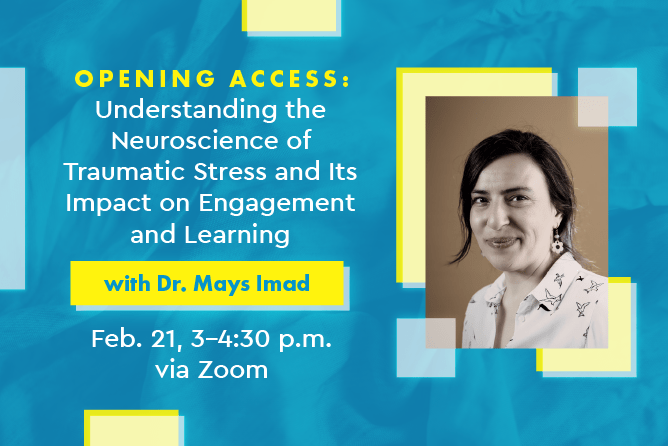Join Dr. Mays Imad and the CATL staff on Feb. 21 from 3–4:30 p.m. as we consider the notion of psychological trauma—why it happens and how it impacts our body and brain. We will examine the connections between stress and trauma and how stress can become traumatic when not acknowledged or managed. We will examine the neuroscience of traumatic stress and its impact on our ability to engage, connect, and learn. We will reflect on the questions of how we will welcome our students and colleagues to our institutions and classrooms this semester and beyond. What can we, educators, possibly do to help attend to their mental health and ameliorate their exhaustion and distress, while at the same time intentionally engaging in self-care? We will consider the imperative of self-care while caring for others. Last, we will examine the principles, notable misconceptions, and practical examples of trauma-informed care, and reflect on the connections between trauma-informed education, healing, and restorative justice.
Resources and Session Recording
View a selection of follow-up resources on trauma-informed pedagogy and the session recording (requires UWGB credentials to view).
